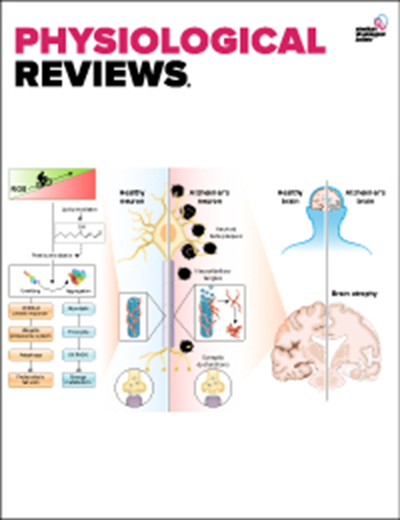I型干扰素在健康和疾病中的作用——分子方面和临床意义。
IF 28.7
1区 医学
Q1 PHYSIOLOGY
引用次数: 0
摘要
I型干扰素(ifn),特别是IFNα和IFNβ,在人类对抗病毒感染的免疫反应中起着至关重要的作用。这篇综述深入探讨了I型ifn在多方面的抗病毒、免疫调节和抗肿瘤的生理作用,同时描述了它们在各种疾病病理的发病机制中的贡献,包括癌症、全身和器官特异性自身免疫、神经炎症和动脉粥样硬化。本文还讨论了影响I型IFN通路激活的遗传决定因素,以及在自身免疫和癌症的背景下靶向或刺激这些通路的治疗干预措施。最后,对I型ifn作为不同临床和血清学表型的生物标志物的作用的当前理解,它们与疾病活动性的相关性,它们在不同临床情况下治疗结果的预测作用,以及与它们在临床实践中实施相关的挑战,都得到了彻底的解决。总之,这些见解强调了I型ifn作为介质和治疗靶点的巨大潜力,以重塑临床决策,同时强调了迫切需要强有力的、标准化的方法来评估I型ifn并将其纳入常规实践。本文章由计算机程序翻译,如有差异,请以英文原文为准。
Type I Interferons in health and disease-Molecular aspects and clinical implications.
Type I interferons (IFNs), particularly IFNα and IFNβ, play a crucial role in the human immune response against viral infections. This review delves into the multifaceted antiviral, immunomodulatory and antitumor physiological roles of type I IFNs, while describing their contribution to the pathogenesis of various disease pathologies including cancer, systemic and organ specific autoimmunity, neuroinflammation and atherosclerosis. Genetic determinants influencing activation of type I IFN pathways and therapeutic interventions either targeting or stimulating these pathways in the context of autoimmunity and cancer respectively are also discussed. Ultimately, the current understanding of the role of type I IFNs as biomarkers indicative of distinct clinical and serological phenotypes, their correlation with disease activity, their predictive role in therapeutic outcomes across diverse clinical scenarios, as well as the challenges associated with their implementation in clinical practice, are thoroughly addressed. Together, these insights underscore the significant potential of type I IFNs, as mediators and therapeutic targets, to reshape clinical decision-making, while highlighting the urgent need for robust, standardized methodologies for assessment of type I IFNs and their integration into routine practice.
求助全文
通过发布文献求助,成功后即可免费获取论文全文。
去求助
来源期刊

Physiological reviews
医学-生理学
CiteScore
56.50
自引率
0.90%
发文量
53
期刊介绍:
Physiological Reviews is a highly regarded journal that covers timely issues in physiological and biomedical sciences. It is targeted towards physiologists, neuroscientists, cell biologists, biophysicists, and clinicians with a special interest in pathophysiology. The journal has an ISSN of 0031-9333 for print and 1522-1210 for online versions. It has a unique publishing frequency where articles are published individually, but regular quarterly issues are also released in January, April, July, and October. The articles in this journal provide state-of-the-art and comprehensive coverage of various topics. They are valuable for teaching and research purposes as they offer interesting and clearly written updates on important new developments. Physiological Reviews holds a prominent position in the scientific community and consistently ranks as the most impactful journal in the field of physiology.
 求助内容:
求助内容: 应助结果提醒方式:
应助结果提醒方式:


